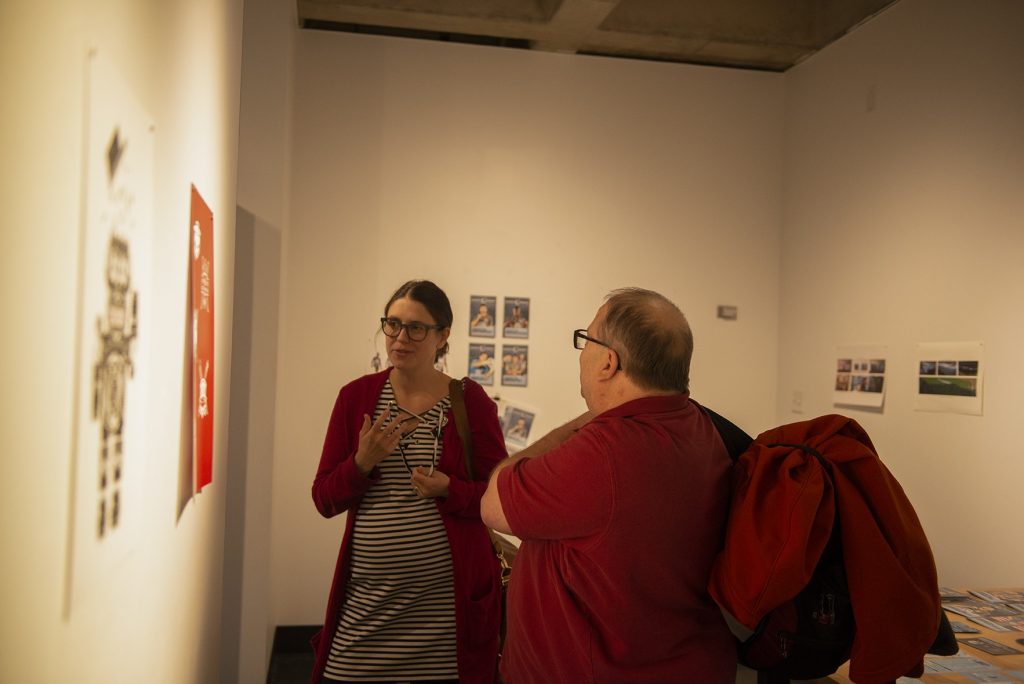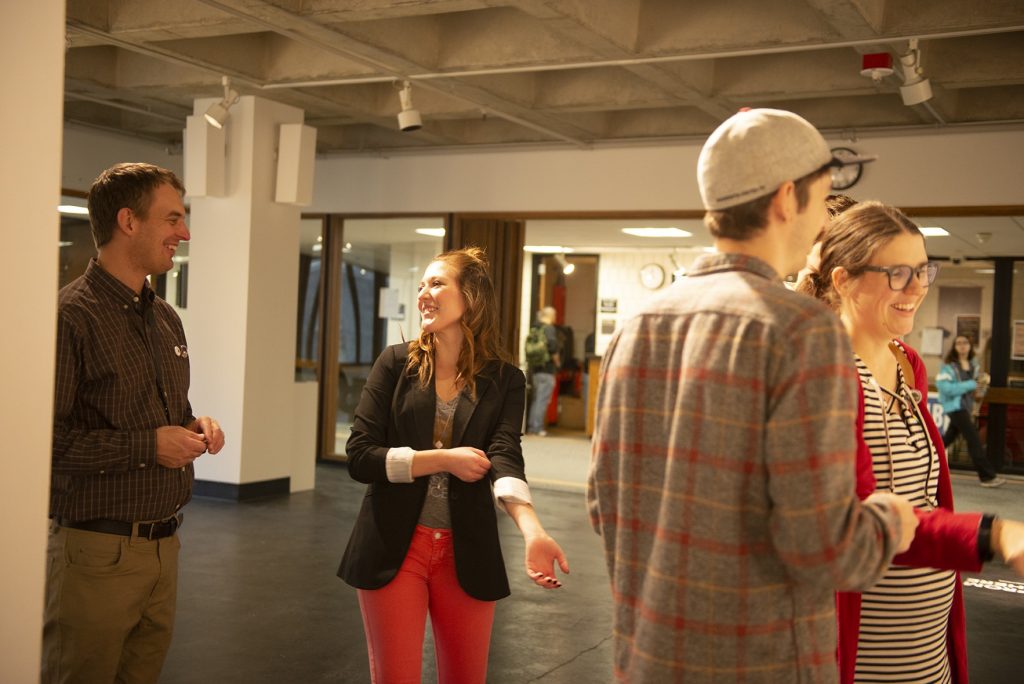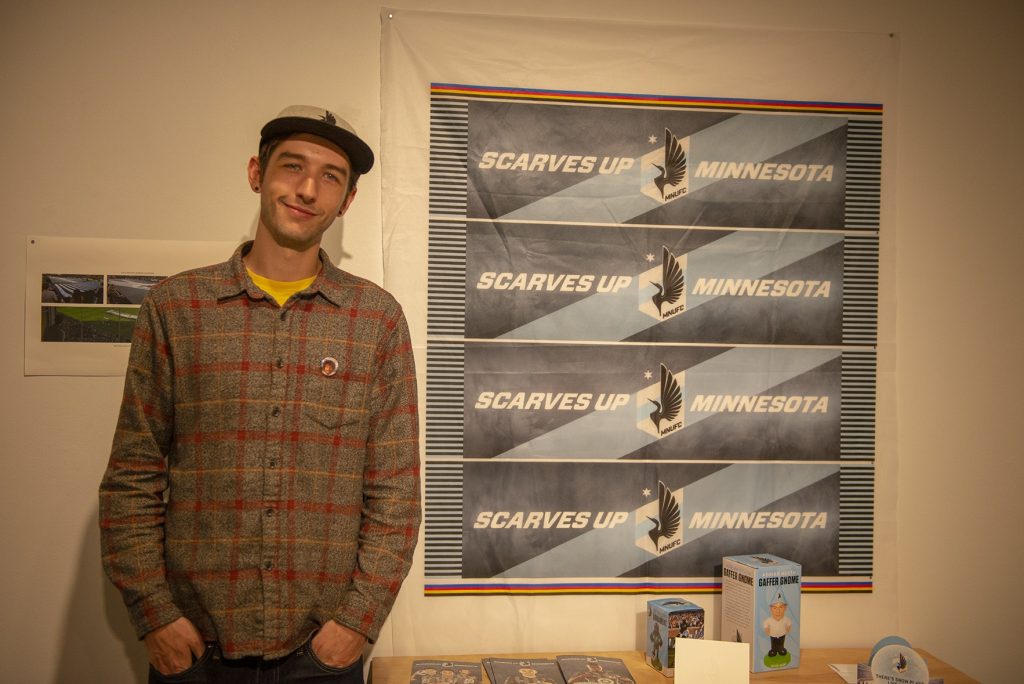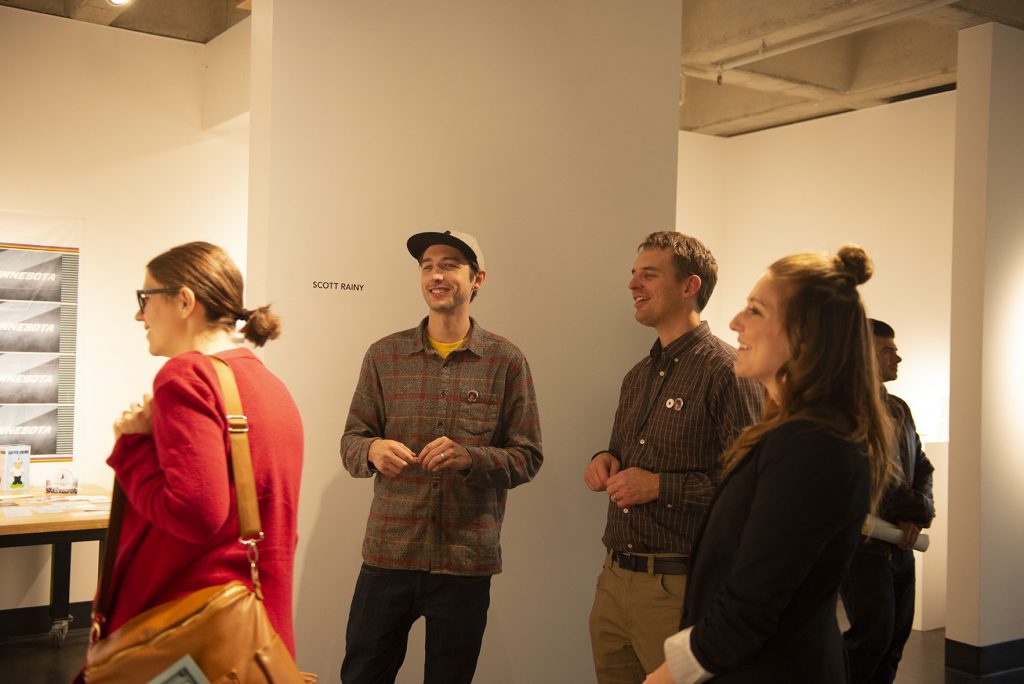The Getting from Here to There Rochester Community and Technical College graphic design alumni exhibit hosted four former students doing big things in the design world.
The alumni are as eclectic as their designs. Scott Rainy works full-time designing things like game-day pamphlet covers for Minnesota United FC, while Ann Pavlish is a graphic designer for Twin Cities PBS.
All four recently got together at RCTC to talk about how they got to where they are today in the design world.
Since it was more of a causal Q&A style event with a conversational tone, we compiled some responses below with some context, and some without, highlighting some advice and experiences the four have had in their careers.
You can check out samples of their work at the RCTC Art Gallery, located in room CC200, until Dec. 13.

Jana Baecker – Duluth Public Schools/Self Employed Instructor, Business Owner
When asked about her work and projects in general:
“When you do work in the real world you might not like the end result too much, but if the client is happy, that’s what you want.
“Keep doing personal work for yourself, because you get to work on what you want to do, and it keeps you motivated.”
On her work at an agency versus being a freelancer, Baecker said both have their ups and downs.
“The advantage of being on your own is first of all, you can set your own schedule and how you want to work.”
When asked about their time at RCTC, each student had good memories of the College.
“At RCTC I think that a lot of the instructors – I just found there was more passion here than at UMD (University of Minnesota – Duluth), to be honest.”

Ann Pavlish – Twin Cities PBS Graphic Designer
“From just working at a non-profit, for me, it’s nice to have insurance, which you don’t get when you’re freelance. Something to think about too after you turn 26 – your parents’ insurance goes away. You have to pay your insurance if you’re doing freelance, you have to buy all of your own equipment freelance, so those are just things you have to take into consideration too.
“It might not be as fun all the time in the corporate world, but you have insurance, I leave at five o’clock every day, I can take a sick day and no one is on the phone calling me asking me, ‘where is this thing?’
“Find that balance… side projects, something to keep you creative.
“It’s such a smaller school here (RCTC) that we got to know each other really well and that’s a different environment than when you go straight to a four year.”

Scott Rainy – Minnesota United FC Graphic Designer
“Ultimately, you’re working in a service environment. You have to provide a solution no matter what. If you don’t come to some commonality of the end product, then you failed and you might not get hired again by that person.
“Creativity is hard to pump out every day. You will be dissatisfied at some pieces just because somebody else wants something.
“If you do personal stuff, people are probably more likely to hire you. You may be hired specifically to do a piece exactly like the exploration that you did in your personal art. There are opportunities that will come up.
“I’m going to say something kind of crazy, but when you work in freelance, you are not the client. You are their boss, essentially. They came to you for a service. You should lead them to the final solution, not have them send you down their pathway of trying to get to the solution. You will discover that you as a designer and independent creative will fire the people who hire you, because you just don’t want to deal with it anymore. It’s not a bad thing, by the way. It’s just the reality of the business.
“Some of the students in here may not know how awesome it is to have Dan (Vedamuthu) or Tony (Rostvold) be able to open up a room for questions, or have them visit you by your computer and work one on one. Those opportunities don’t come at a university taught system as much anymore. The care and attention that these faculty members do give to students is incredible compared to other places.
“At RCTC I was able to focus on core fundamentals of design, and at UMD I was able to take more studio classes.”

Loren Thomas – Em En Deisgn Design Lead, Copywriter
Thomas is unique in that he has a degree in business. He came to RCTC later for design, and thinks a minor in business, or even taking business classes, is helpful for students.
On a minor in business.
“It’s never going to hurt you; it can only help you.
“It’s good to have a background in business. If you are inherently a good problem solver, if you are inherently a good communicator you can succeed. Things will seem relatively common sense.”
(Rainy said he wished he had taken more business classes so he could pursue more freelance work.)
Thomas also said that sometimes pursuing business classes can scare people away from doing freelance and running their own business, but that it shouldn’t.
“It keeps them from taking the leap. Be wary of how the skills you attain influence your choices.”
